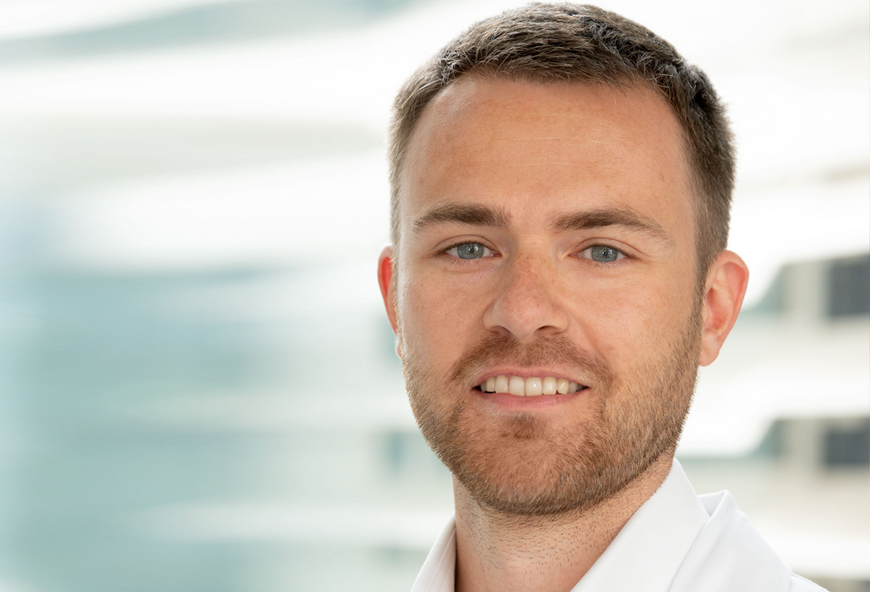- The University
- Studying
-
Research
- Profile
- Infrastructure
- Cooperations
- Services
-
Career
- Med Uni Graz as an Employer
- Educational Opportunities
- Work Environment
- Job openings
-
Diagnostics
- Patients
- Referring physicians
-
Health Topics
- Health Infrastructure
Medicine Diploma
The aim is to provide students with the best preparation for entry into working life and an optimal foundation for postgraduate training in all specialist disciplines based on a broad medical education. At the same time, they should be capable of critically engaging with medical changes over the course of their working life in the sense of lifelong learning. This curriculum also incorporates postgraduate professional development content in order to create a consistent concept for the entire medical education.
The objective of the Medicine Diploma program is to impart theoretical knowledge, to practice and develop psychosocial abilities and practical skills and to shape ethical behavior. It consists of a core curriculum (compulsory courses) and elective elements (compulsory electives and free electives). The core curriculum is defined on the basis of clinical presentations that are selected according to the following criteria:
- Epidemiology
- Urgency of treatment
- Severity
- Disease prototypes
The learning goals of the individual clinical presentations are defined according to the biopsychosocial model of health in the following dimensions: knowledge (biomedical/psychosocial), skills/abilities (diagnostic and therapeutic procedures using the latest equipment and instruments) and attitudes. Content from the areas prevention, rehabilitation, ethics, geriatrics and palliative medicine receives in-depth treatment. With regard to medical ethics, this involves integrating ethically relevant topics into the individual modules while recognizing them as such. These topics build upon each other:
- Clarification, conveying and discussion of the theoretical frame of reference, basic concepts, conceptual tools and methodological approach
- Application of basic concepts and agreed upon rules of procedure to specific cases or problems
- Description, reflection and assessment of the process and the results
Phase 1
Length: 2 years; 4 semesters
The first phase imparts knowledge and a basic understanding of the human organism and supplies the theoretical foundation for understanding clinical presentations. It encompasses initial training in medical skills and communication as well as an introduction to the principles of medical practice, women's studies, gender studies and an exploration of occupational fields. Important elements are the introduction to general practice in the course "Introduction to Medicine" and the experience of care during a ward internship, which provides early contact with patients.
Phase 2
Length: 3 years; 5 to 10 semesters
In the second phase, students acquire knowledge of the healthy and diseased organism. Topic-centered, patient-oriented, interdisciplinary courses include clinical presentations and employ new forms of teaching such as problem-based learning. More training in medical skills and abilities ensures continuous practical application of theoretical knowledge.
Phase 3: Clinical practice year (KPJ)
In the third phase, the clinical practice year (CPY), students are integrated into the daily routine at University Hospital Graz or other teaching hospitals within Austria or abroad as learning team members. Students must spend a total of 48 weeks at the hospital. They deepen their understanding and acquire the competences listed in the Österreichischer Kompetenzlevelkatalog für ärztliche Fertigkeiten (Austrian Competence Level Catalogue of Medical Skills) according to European guidelines. An internship in a general practice teaching practice in Austria and courses in the form of tracks must also be completed. Knowledge acquisition is verified by special methods of examination and case reports that are examined by Med Uni Graz instructors.
Special study modules (SSM)
Special study modules teach selected topics in medicine in greater depth. For coursework to be assigned, the courses must be taught at the Medical University of Graz or another accredited postsecondary educational institution in Austria or abroad, consist of six ECTS credits and have a content-related thematic focus. Special study modules are taught as seminars with exercises. Different special study modules are offered each academic year. The current list of special study modules being offered (subject to change) and a specific description of content and goals can be found at MEDonline in the respective course summary.
The special study modules cannot be completed until the first phase of the program has been finished.
In the second phase, one research module and three special study modules of 6 ECTS points each must be completed. According to the curriculum, this should occur in the fourth and fifth years of study. A special study module may be replaced by a second special research module.
Special research modules (SRM)
Special research modules allow the scientific examination of a special topic that is conducted as part of the diploma thesis (DT).
Examples of such topics or subtopics are: scientific collaboration on a study, research as the basis for a DT, selection of methods for the DT, preparation of an Ethics Committee application, preparation of a literary review for the DT.
In the second phase, one research module and three special study modules of six ECTS credits each must be completed. According to the curriculum, this should occur in the fourth and fifth years of study. A special study module may be replaced by a second special research module.
Prerequisite: A special research module cannot be completed until the first phase of the program has been finished.
Special research modules must be completed in SRM/SSM slots within a period of five weeks. A SRM may not be completed in parallel to modules, a SSM or another SRM.

I like to look back on my time as a student at Med Uni Graz. Not only was I taught the principles of medicine but I was also able to gain my first experiences with scientific work. The module system and the practical orientation encouraged alternative approaches to medical problems from which I still benefit today.
Matthias Graupp, Division of Phoniatrics






